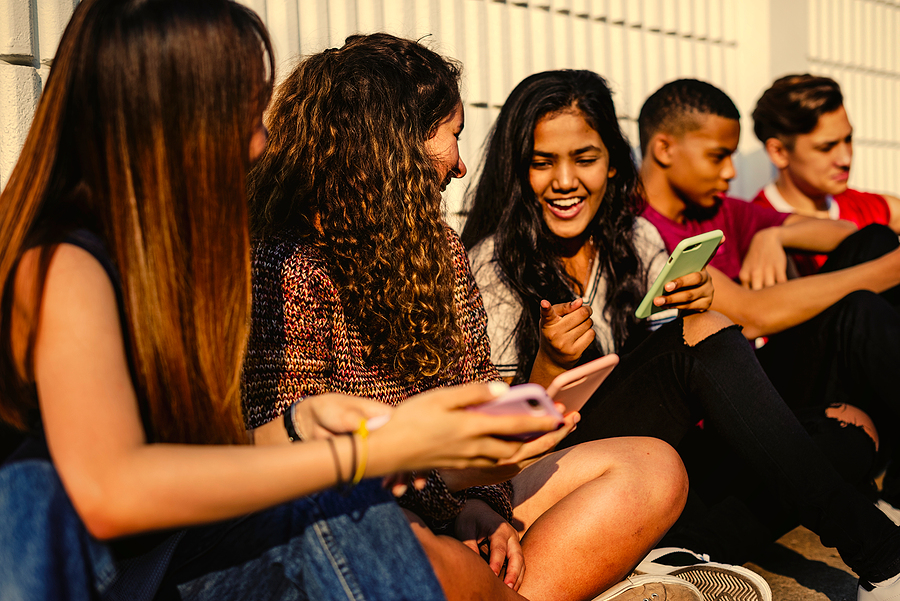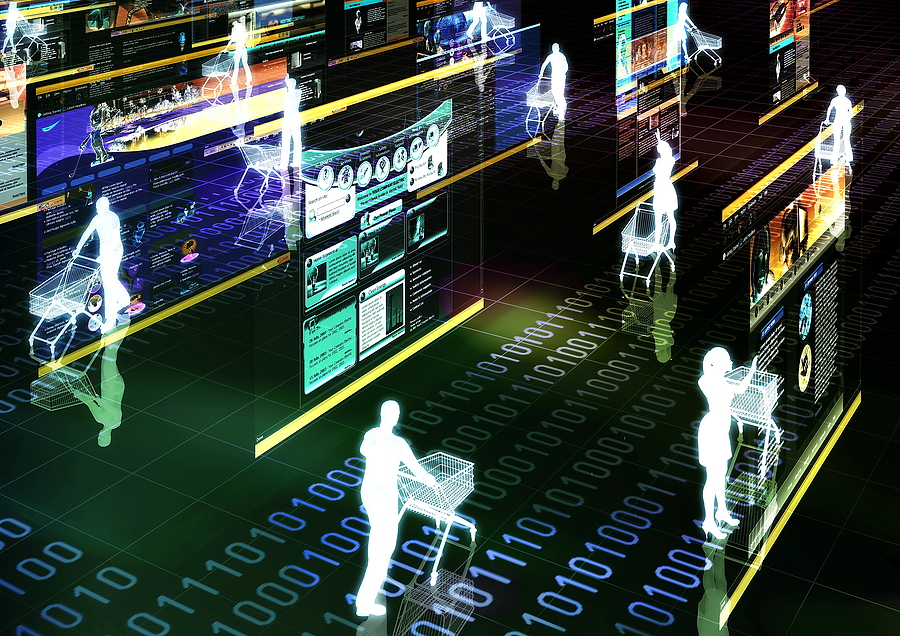How do algorithms affect our job prospects? What is the role of Artificial Intelligence within Netflix? And should companies decide what you see on social media? The social aspects of Artificial Intelligence (AI) are increasingly raising societal questions. The Erasmus Initiative ‘Societal Impact of AI’ established in 2021, aims to bring together knowledge around AI from different disciplines and sectors and provide answers to these questions.
"Within the new Erasmus Initiative, Societal Impact of AI’, in short AiPact, we work in a transdisciplinary way. The societal challenges around AI are our starting point, not our own background or discipline. We want to bring together the knowledge around AI so that the entire society can take full advantage of the opportunities of AI while reducing the adverse effects of AI for different groups," says Moniek Buijzen, Academic Lead at the Initiative and researcher at the Movez Lab.
AI is not magic, but requires human work
The Erasmus Initiative supports eight projects addressing four domains: AI in Arts and Culture, Communication and Change, Healthcare Policy and Work and Labour. This last domain focusses on how work and organising change due to AI, but also on the human labour necessary for AI. This ties in closely with the ongoing research projects of Claartje ter Hoeven, Programme Line Leader of the latter domain. "Scientists predicted years ago that by 2025, half of our work would be done by robots. Judy Wajcman wrote a book review about books which made this kind of predictions. In her review she said something along the lines of: 'All these authors shy away from the extent to which technologies are not facilitating less work but more worse jobs.' Somehow, I have always remembered this. In my research, I look at the working conditions of microworkers, these are people who perform online tasks to make AI smarter or clean up big data. For example, they look at dog pictures all day and have to click on the labradors. By doing this, the system eventually knows what a labrador is. This work is unprotected and underpaid. With my research, I want to make people aware that AI is not 'Magic'. Behind AI, there is human work, and these people need to be appreciated and rewarded decently."
Risks and opportunities of social media
In her research on digital media interventions, Moniek also sees the adverse effects of far-reaching digitization. "As one of the biggest dangers, I see the 'Power of Tech'. That big tech companies will decide on public values. You can see this, for example, happening on social media now, where Meta and Youtube have their own guidelines for which violent or sexual content is acceptable on their platform. Or on the contrary, take no responsibility for 'Juice or gossip accounts' that refuse to adhere to the code for journalism. These accounts release gossip into the world without, for example, hearing both sides of the story. That is undesirable." Yet, in her research, she also sees opportunities to use AI in a positive way. "Algorithmic personalization on social media can also really empower certain groups to adjust their behaviour. To lead, for example, a healthy and green lifestyle and engage in prosocial behaviour."
Science needed for determine norms and values
To limit the adverse effects of AI and make the most of the opportunities, both Moniek and Claartje see a crucial role for the social sciences and humanities. Moniek: "In the current debate, the term 'human centred AI' is often mentioned. How can you develop AI in line with human values? For that, you need social scientists and humanities researchers. We find that the more technical researchers are also asking for our help on this." For example, algorithms used for selecting resumes prove racist and sexist. These algorithms are based on data from previous human decisions. "It, therefore, holds up a mirror to us and allows us to improve ourselves. In order to determine the norms and values of these new techniques, the social sciences and humanities are very much needed."
Building a (young) network
Over the next four years, the researchers hope to build a strong network inside and outside the university. So that researchers and professionals working on topics around AI can find each other. Through cocreation projects with all stakeholders, the initiative wants to contribute to the societal debate and the convergence between our university, Erasmus MC and TU Delft. Both Moniek and Claartje think they have brought the right people on board for this. Moniek: "At the start of the initiative, we said, the people of tomorrow must lead us into the future, not the people of yesterday. That is why we have attracted young researchers who are given all the freedom and space they need to develop their interests and talents further. This 'AiPack' is leading our projects, and they bring an awful lot of energy and enthusiasm!"
Stay up to date on AiPact via their website or LinkedIn. Or view the event calendar of the initiative.

